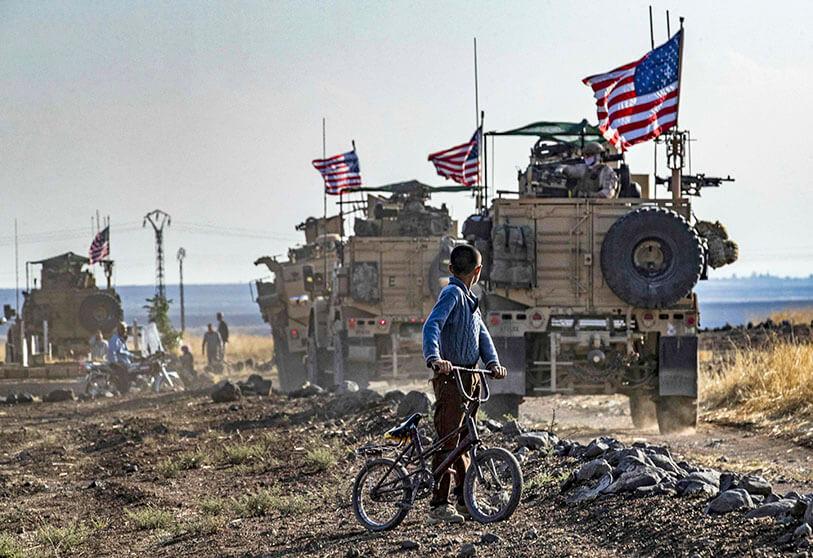Alarm bells ringing for the UAE security as one of the biggest partners of the US and the West in the region resulted in Gen. McKenzie, Commander of the CENTCOM, to speak of the need to counter future attacks of the Yemeni resistance and security cooperation between the two countries, during his visit to the UAE.
The UAE is part of the Saudi-led coalition in the Yemen war, and despite its declining military presence in Yemen since 2019, it has recently reaffirmed its full and complete support for pro-Saudi proxy forces.
On the other hand, simultaneously with such interactions and escalation of regional tensions, Tel Aviv has also tried to take action for new alliances to confront with Iran. Recently, Tal Kalman, the Zionist regime’s top military official, reiterated the need for the establishment of a NATO-like alliance to confront with Iran. Israeli Prime Minister Naftali Bennett, while visiting Bahrain, also said that the two sides should fight against Iran.
In the meantime, the question that arises is how an attack on Abu Dhabi by Ansarollah has become an excuse for the United States and its regional allies that, simultaneously with the nuclear talks, once again refer to Iran as a threat to them? What is the regional strategy of those countries, namely the United States, Saudi Arabia, and their Arab and Zionist allies, and based on such strategies, what results can be imagined?
Security competition: uncoordinated axis of Washington, regional allies against Iran
The United States, after the gradual weakening of its security umbrella in the region, seeks to stabilize one of its spheres of influence (the Middle East). On a larger scale, Washington is pursuing a plan to reduce costs and focus on other strategic and crucial areas in the world order, and in the Middle East, it intends to return to a regional balance of power strategy simultaneously with a deterrent and balancing presence in time of need.
In order to implement its strategy in the region, first the country must prevent the change in balance in the Yemen war in favor of Ansarollah. To such an extent to ensure that Saudi Arabia and its coalition will not be the loser of the Yemen war. On the other hand, confronting and controlling Iran is another US program. A restraint that seems vital given the inability of countries in the region to confront Tehran without the full presence and support of Washington.
From the US point of view, Iran and its allied forces in the region, as happened in the past decades, are no longer merely equipped with rocket weapons, but as they become ballistic missile and drone powers, the balance of power has clearly changed in the region.
Another point to consider is the lack of common understanding between the United States and its regional allies, the Zionist regime and Saudi Arabia, of regional issues. The Zionist regime is pursuing its own stressful program; a plan that aims to portray Iran as the biggest threat and to approach other countries in the region to counter Tehran as a common threat.
Accordingly, Zionist officials say there is a need for a regional alliance against Iran. Saudi Arabia is also trying not to leave the field empty for Iran’s bravery.
Therefore, such adventures by the US allies in the region have left the country so caught up in rampant rivalries that, like the fresh America of the past decades, can no longer afford to deal with all of them.
In relation to Iran, the important issue is that the Zionist regime, Saudi Arabia, the UAE and Bahrain are fighting against Iran in the region; but not directly, rather by confronting the forces supported by the country, which are part of Tehran’s deterrent power. A kind of asymmetric deterrence that is considered a security factor for Iran, at least with a realistic lens, and weakens its rivals.
On the other hand, in terms of multiple components of power, Iran has an upper hand against regimes such as the Zionist regime and Saudi Arabia in the region. That is why the issue of forming an alliance against Iran, as much as the current NATO against Russia, will be ineffective, because its influential role in the region cannot be ignored.
Conclusion
In regional competition in the Middle East, it can be inferred that by gradually weakening the combat capability (such as the inefficiency of the THAAD and Patriot PAC-3 defense systems against the Yemeni military attacks on Abu Dhabi), those countries will also seek to strengthen deterrence against Iran through US intervention. Thus, the US presence in the region has a strong impact on the security equations.
That is why, on the one hand, Iran is seeking the withdrawal of the United States from the region, and on the other hand, the Arab countries and the Zionist regime are seeking to bring it back to the security issues of the Middle East. The region’s security pressure, due to the tense actions of some of its actors, calls on the United States to remain committed to the Middle East; while China’s challenge with the US good international order and Washington’s efforts to contain Beijing show that the country is preoccupied with another region.










0 Comments